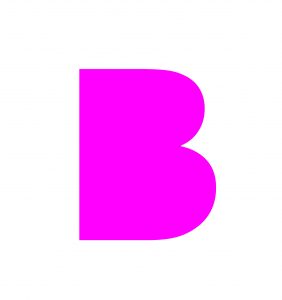Definition
 Diversity refers to difference or distinction between subjects. It is a profoundly anti-discriminatory value linked to the recognition of the person as a being worthy of respect (Forward and Article 2 of the 1948 Universal Declaration of Human Rights). It can be broken down into:
Diversity refers to difference or distinction between subjects. It is a profoundly anti-discriminatory value linked to the recognition of the person as a being worthy of respect (Forward and Article 2 of the 1948 Universal Declaration of Human Rights). It can be broken down into:
-
Sexual diversity, a term used to refer to the different types of sexual identity or orientation.
-
Religious or cultural diversity, an expression that reflects the existence of different cultures or religions in a single society.
-
Political-ideological diversity, a term that explains the plurality of political and ideological options in a certain political community.
-
Functional diversity, an expression underlying the specific capabilities of each person and which are used to replace others, with negative connotations, such as incapacity, disability and handicap.
When people, organisations or institutions apply the filter of there being only a single culture or a single way of understanding sexuality or a single way of being, there is a more or less explicit rejection of diversity and discriminatory attitudes are generated. Direct discrimination occurs when a person, on the grounds of their race, ethnicity or religion or their disability or their sexual option, is treated less favourably than another person in a comparable situation. And indirect discrimination takes place, in turn, when an apparently neutral provision, criterion or practical places people on the grounds of their specific race, ethnicity or religion or with a disability at an disadvantage with respect to others. In order for diversity to be effectively respected, a reasonable degree of social equality has to be fostered as the result of the practice of the distributive justice and the social rights (link to the value of diversity and that of solidarity).
Associated behaviours
The implications on the behaviours of the three stakeholders (individuals, civil society organisations and public institutions) promoting the “diversity” value are of different nature and extent.
Citizens
The person promoting diversity is expected to break with a monolithic vision of the very identity of which it is difficult to be aware, thus breaking with the general trend of the human being to be exclusively linked to those people and groups with which they share a sense of belonging. This openness towards an “Other” in plural must not mean a complacent relativism that prevents the commitment to the values defending human dignity. Similar attitudes can and must lead to transformative actions to manage diversity according to the very possibilities.
Social organisations
They are expected to design their external and internal activity by fostering the participation and integration of sectors that are culturally and functionally diverse. The knowledge of the “Other” is therefore necessary to dismantle prejudices and stereotypes. The appraisal of the different does not imply communing with, or stifling criticism of, intolerable approaches and practices. For example, those where women are treated as inferiors. That type of practices harms human dignity and there is no excuse that can circumvent their duty to denounce and work to eradicate them.
City Council
This area of public responsibility must involve activities aimed at: a) effectively contributing to use public policies to eliminate different cultural, political, economic and social discrimination mechanisms and at developing crossing-cutting proposals for intercultural dialogue and recognition of functional diversity; b) educating to show how discrimination occurs and what the risks are for the coexistence of populist and demagogic discourses that feed prejudices and stereotypes; c) highlighting cultural and functional diversity in public institutions, by creating and boosting the appropriate platforms for that.